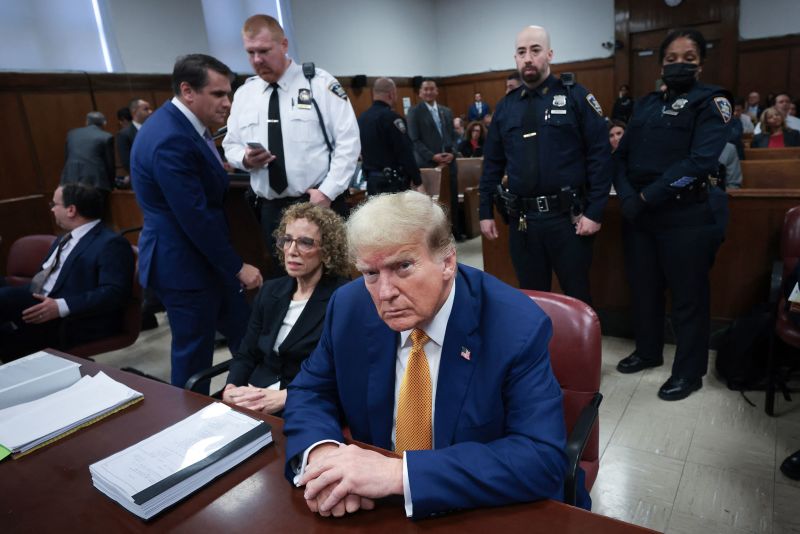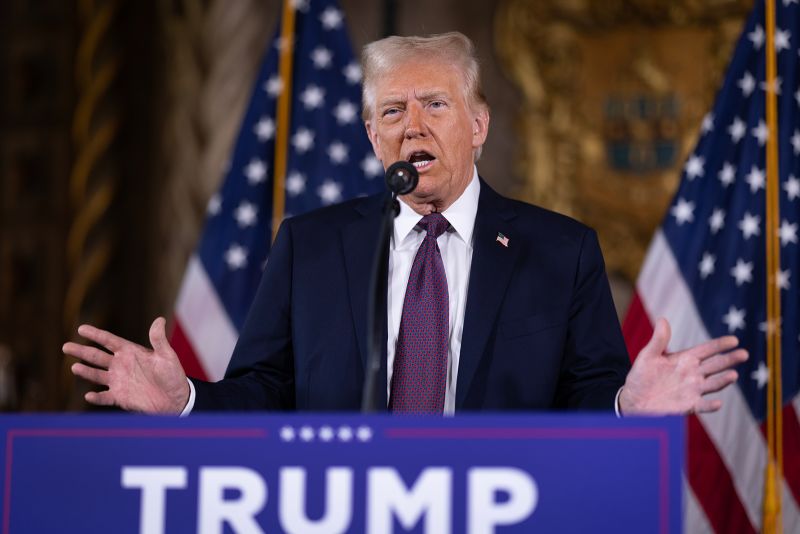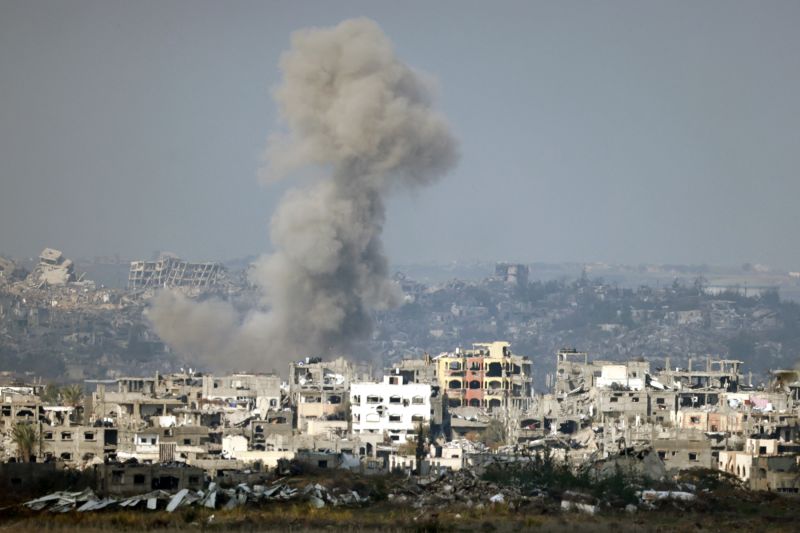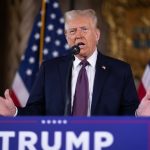Trump asks Supreme Court to pause sentencing in hush money case
January 8, 2025
President-elect Donald Trump on Wednesday urged the US Supreme Court to pause his sentencing in the hush money case, a highly unusual request that relies in part on the court’s decision last year to grant him broad immunity from criminal prosecution.
Trump’s emergency appeal arrived a day after a state appeals court in New York rejected his request to postpone his sentencing, which is set for Friday.
The pause is required, Trump’s attorneys told the court, “to prevent grave injustice and harm to the institution of the presidency and the operations of the federal government.”
In response to Trump’s filing, a spokesperson for Manhattan District Attorney Alvin Bragg said, “We will respond in court papers.”
The high court has asked prosecutors respond by 10 a.m. ET on Thursday.
The president-elect is appealing his conviction on 34 counts of falsifying business records, arguing it should be tossed because a conservative majority of the Supreme Court in July ruled that former presidents are entitled to sweeping immunity for official actions.
Trump’s latest request to the US Supreme Court is unusual – and likely an uphill fight – because his criminal case isn’t yet fully resolved by New York courts. Judge Juan Merchan, the trial judge in New York, has rejected Trump’s demands to stop the Friday sentencing.
Merchan has signaled that Trump, who will be inaugurated on January 20, will face no legal penalties.
Trump was convicted in May of falsifying business records over payments to his then-lawyer Michael Cohen to reimburse a $130,000 hush money payment made to adult-film star Stormy Daniels, in order to keep her from speaking out about an alleged affair before the 2016 election. Trump has denied the affair.
Merchan upheld Trump’s conviction last week.
Earlier Tuesday, a New York appellate judge swiftly rejected Trump’s postponement request following a brief hearing.
Trump’s attorney Todd Blanche, whom he’s picked to serve as a top Justice Department official in his incoming administration, argued during the hearing that the court should stop the sentencing, while acknowledging the situation was unprecedented. Though Merchan has denied two arguments to vacate Trump’s conviction, Blanche argued that either of them should allow for a stay of proceedings while the appeal is litigated.
The Manhattan district attorney’s office, meanwhile, argued Trump’s team has not put forward any argument that a one-hour sentencing hearing would disrupt Trump’s responsibilities as president-elect.
If Trump’s lawyers are successful in halting the proceedings before he is sworn-in in fewer than two weeks, the hush money case could linger for months while his attorneys pursue an appeal to toss out the conviction.
Trump is relying heavily on the Supreme Court’s controversial immunity decision from last year in a new filing Wednesday in which he is asking the high court to pause delay his sentencing.
He is also arguing that continuing to defend himself in the hush money case would distract from the transition and potentially jeopardize national security.
“Defending criminal litigation at all stages – especially, as here, defending a criminal sentencing – is uniquely taxing and burdensome to a criminal defendant,” Trump’s lawyers told the high court.
“President Trump is currently engaged in the most crucial and sensitive tasks of preparing to assume the executive power in less than two weeks, all of which are essential to the United States’ national security and vital interests,” they wrote.
Merchan had previously rejected Trump’s arguments around immunity, concluding that Trump’s hush money case involved unofficial conduct that is not entitled to protection.
“That decision, among many others made by the trial court, was made in error and, if allowed to stand, would gravely undermine the American Presidency as we know it,” Trump told the US Supreme Court in his emergency appeal.
Trump also asked the Supreme Court on Wednesday for an administrative pause on the lower court’s proceedings. If the Supreme Court accepts that idea, it would give the justices a few days to review legal briefs in the case before deciding on Trump’s underlying request.









